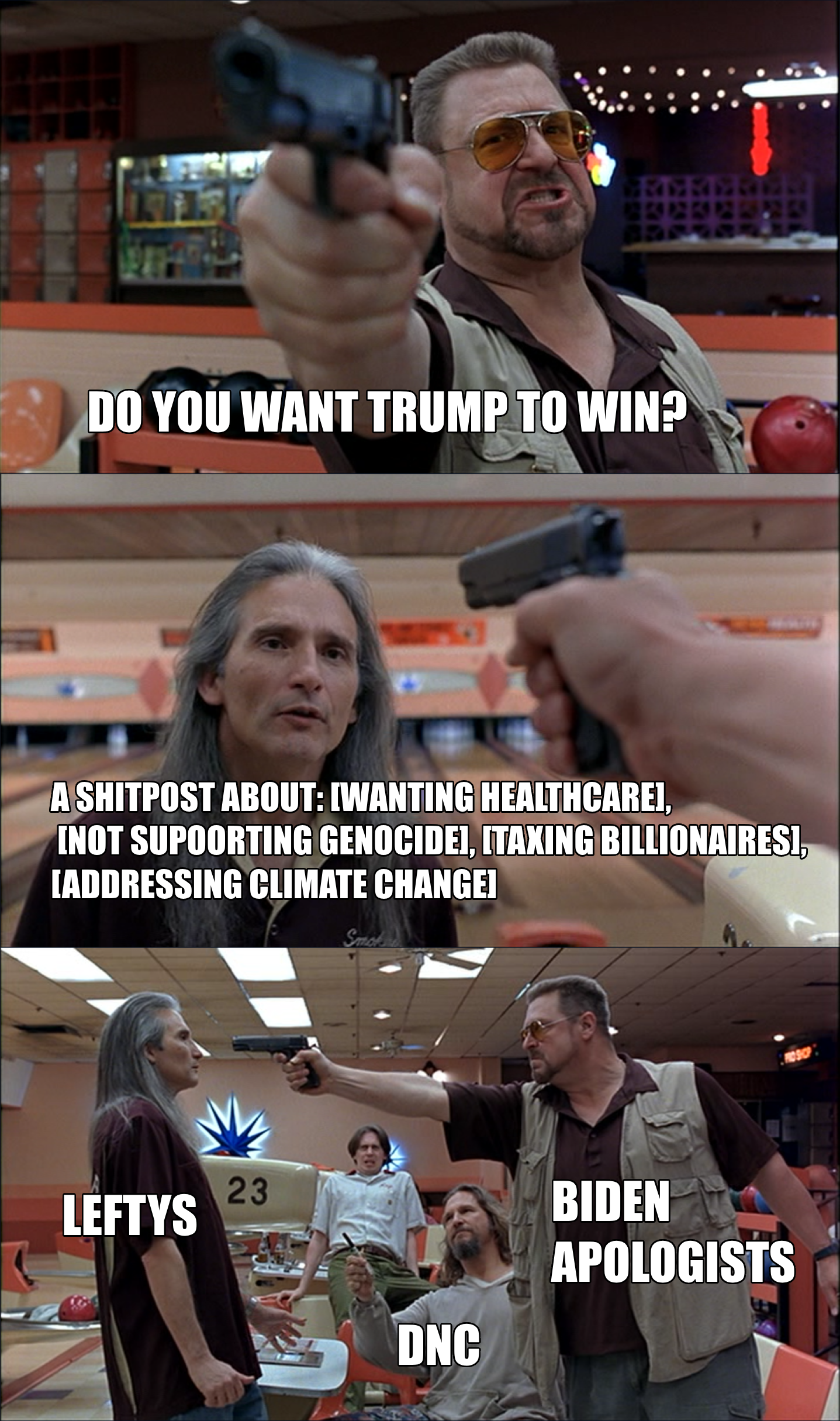this post was submitted on 05 Apr 2024
-25 points (38.1% liked)
Political Memes
8625 readers
3100 users here now
Welcome to politcal memes!
These are our rules:
Be civil
Jokes are okay, but don’t intentionally harass or disturb any member of our community. Sexism, racism and bigotry are not allowed. Good faith argumentation only. No posts discouraging people to vote or shaming people for voting.
No misinformation
Don’t post any intentional misinformation. When asked by mods, provide sources for any claims you make.
Posts should be memes
Random pictures do not qualify as memes. Relevance to politics is required.
No bots, spam or self-promotion
Follow instance rules, ask for your bot to be allowed on this community.
No AI generated content.
Content posted must not be created by AI with the intent to mimic the style of existing images
founded 2 years ago
MODERATORS
you are viewing a single comment's thread
view the rest of the comments
view the rest of the comments

Multiple choice is statistically better
What's that?
I've heard of Ranked Choice or STAR
Fuck all that. STAR voting for presidents.
Edit: want more details, see my other comment
STAR is ridiculously bad, it just has good marketing. It favors the preferences of voters who pick extremes, ranking everybody either a 1 or a 5 - likely the least informed and thoughtful voters - over voters who carefully weigh whether a candidate deserves 3 or 4 stars. Ranked choice is simple and effective, takes more granular voter preference into account, and provides runoff for each virtual round, rather than just the last. It also has a simple variant that works equally well for multi-seat elections.
I've read up on all the voting systems and I think your take is incorrect. I want to be clear that both are better than FPTP and I politically support RCV more often because it is more well-known, because IT is actually the one with all the PR, not STAR voting. RCV does not get pitched because it is the ultimately best choice - it gets pitched because it's the most well-known from PR. Meanwhile it's mostly math geeks talking about STAR voting.
With that out of the way, RCV has issues that STAR voting does not.
Ranked choice deals with bizarre issues which makes it finicky in various cases. Because of how ranked choice works, during any round, parties with the most candidates end up with their votes most split, which can actually lead to candidates being eliminated early despite them having more overall support than other candidates. Ultimately this means the party with the most candidates actually gives its voting base the least amount of voting power. You can also have various cases where a third party candidate with very little majority support can flat out win elections through the premature elimination case. On top of this, your vote can often not be counted in RCV, called ballot exhaustion. This occurs if your top vote is eliminated after your other choices, leading to your ballot having no other candidates for your vote to go to.
I could also go into Arrow's Impossibility 'theorem' but it ends up not being useful to the overall conversation IMO.
Meanwhile, exhaustive testing has shown there is currently no known way to game STAR voting. The idea that voters picking extremes have more power in a STAR voting system is misguided. They cannot sway the space, they only make the mistake of essentially destroying their own nuance. What this does is it flattens the overall distribution curve - which does nothing major to actual results. If two candidates were the most likely to win, then they will still be spikes in the distribution and will proceed to runoff. If another candidate is less popular than the other two but still has a following, they will also still show up in the distribution the same - they will also not win and thus them not being in the runoff will not matter. It ultimately does not affect the end results of the election. The only edge case it deals with is equal votes at runoff, which is an edge case so unlikely that it shouldn't even be considered possible.
You can go ahead and even try to break it.